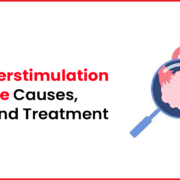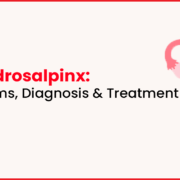How Many Injections Are Needed for IVF Treatment
Understanding the Number of IVF Injections for IVF Treatment
IVF Injections – The drugs used in the IVF process are often hormones that increase the number of eggs produced by the ovaries, making them mature faster to fertilize and make implantation possible. These hormones are also used to stimulate the egg cells into developing into embryos so that they can implant in the uterus.
Another drug commonly used during IVF treatment is gonadotropin-releasing hormone (GnRH). This medication is administered by injection every day for three days following ovulation and before another egg comes out via one of the female’s ovaries.
In some cases, it may not be possible for women to produce eggs on their own due to various medical conditions such as polycystic ovarian syndrome (PCOS), which causes an imbalance in levels of male hormones in women’s bodies, which can affect fertility.
IVF Treatment Overview
In vitro fertilization (IVF) is a procedure that involves removing an egg from a woman’s ovary, fertilizing it in a controlled environment, and then transferring it back into her body. The resulting embryo is placed in the womb for development, where it will grow into a baby. IVF is used for women with problems with their eggs or getting pregnant due to blocked fallopian tubes or other reasons.
A. Explanation of the IVF Process
In vitro fertilization (IVF) is an infertility procedure that uses eggs from a woman’s ovaries and sperm from a man’s testicles to create embryos and implant them into the uterus. The embryos are then implanted into the uterus by a physician or other healthcare professional. The IVF process typically takes place over several months, although some women can have their babies sooner than this.
B. Significance of Injections in the Treatment
Using injections during IVF helps doctors and scientists understand how human egg cells grow and mature. These injections also help doctors understand how certain hormones affect the development and health of a woman’s eggs. For example, some women produce more estrogen than others, making their eggs less likely to develop normally or survive until fertilization; this information can help doctors create medications that will help treat infertility related to low estrogen levels in women’s bodies.
Injections in IVF Treatment
A. Types of Medications and Injections used
Injections are used to increase your chances of getting pregnant. They help you to ovulate and allow for fertilization to take place. Oocytes are collected from the follicles of the ovaries and then fertilized with sperm in the lab.
IVF Injections Typically Consist of the following:
- Follicle-stimulating hormone (FSH) – increases eggs production
- Estradiol – stimulates egg development
- Progesterone is a hormone that prepares the uterine lining for implantation.
- Human chorionic gonadotropin (hCG) is a hormone that causes ovulation.
B. Purpose and Role of Each Injection
The injections used in IVF treatment are designed to treat specific conditions that could interfere with the normal development of embryos. These injections help your body respond to the medications and improve the chances of successful implantation. The Purpose of each injection is to:
- Increase fertility by making fertilising, developing, and implantation easier for eggs.
- Improve egg quality by removing immature eggs from an ovary.
- Prevent pregnancy loss by preventing an embryo from implanting in the uterus.
Factors Influencing the Number of Injections
A. Individualized Treatment Plans
A treatment plan is created after the initial IVF egg retrieval and embryo transfer, which includes a detailed analysis of the patient’s age, sex, and other personal factors. The IVF specialist will determine the number of eggs to retrieve from each patient and the best timing for egg collection for other simultaneous procedures. In addition to these individualized factors, some medications may be prescribed for specific patients, affecting injection costs.
B. Patient-specific Factors Impacting IVF Injections Requirements
In addition to the above, other factors determine the number of injections needed for IVF procedures. These include:
The type of medication used during treatment. For example, some medications require more frequent dosing than others. Most drugs used on women must be administered intravenously (through a vein), but some may be injected into muscle tissue or the abdomen.
The length of time between drug injections. Some drugs can affect fertility by causing chemical changes in sperm or ova (eggs). If you’re trying to become pregnant with donor sperm or donor egg and wait too long between injections, it could affect your ability to conceive. Some drugs also require daily administration, while others can be given once a week or less frequently if necessary.
Managing Injections at Imprimis IVF
A. Support and guidance from the experienced medical team
Managing injections at Imprimis IVF is a process that can be intimidating for patients. However, with the guidance of our experienced medical team and Support staff, you will have everything you need to feel confident in your ability to manage your injection price.
We offer several types of injections, including Follistim/Gonal-F (for ovulation induction), Lupron Depot (for gonadotropin therapy), and HCG (for fertility monitoring). Our practice has used these products since they were first introduced, so we have experience with the medications and how best to administer them.
We also have several resources available to help you prepare for your injections, or medical team members will sit down with each patient and review their injection schedule before they leave the office.
B. Tips for Self-administration of IVF Injections
- Ensure the clinician is giving you the correct dose from the syringe and not just drawing up a large volume of fluid.
- Please get in the habit of doing your injection at least 30 minutes before starting fertility treatment (e.g., ovulation) or immediately after completing it so that your body is less likely to experience any pain from being injected.
- Do not self-inject if you have an allergy to any of the medications contained within Imprimis IVF’s Injectable Protocols (IVF) kits; consult with your physician before use if you have questions about this.
- If possible, choose a time when you are less likely to be bothered by others around you (e.g., in the bathroom).
- If possible, avoid injecting directly into skin folds such as those found on elbows or wrists; these areas are more responsive than others.
Side Effects and Risks of IVF Injections
A. Common Side Effects and How They Are Managed
Several common side effects of In vitro fertilization (IVF) treatment exist. These include:
- Weight gain
- Mood changes
- Nausea and vomiting
- Bloating or water retention
- Hair loss
B. Risks Associated with IVF Injections and Their Monitoring
Occasionally, a patient may experience pain, swelling, or bruising following the follicle-stimulating hormone (FSH) injection or human chorionic gonadotropin (hCG). These symptoms should resolve within a few days without treatment. A pregnancy test should be performed if the woman is not pregnant within two weeks of the injection to ensure no other cause for the symptoms has occurred.
Alternative Treatment Approaches
A. Exploring Alternative Protocols
There are many ways to achieve pregnancy, and many people use more than one method. For example, some couples will try for a baby using natural cycle IVF (ICSI), which involves using donor eggs from a friend or family member rather than your eggs. A second option is to try for a baby using minimal stimulation IVF (MIVF). It requires removing the ovaries, making it impossible for them to make eggs. It’s also possible to use two types of contraception at once during an IVF cycle: one method can be used for egg collection, and the other must be taken after fertilization.
B. Options for Minimal Stimulation or Natural Cycle IVF
In addition to these options, it’s possible to use minimal stimulation or natural cycle IVF. If you’re trying to get pregnant with donor sperm or have unexplained infertility or unexplained subfertility issues. You have not responded to other treatments such as hormone therapy and fertility drugs (for example, Clomid).
Conclusion
A. Importance of Personalized Treatment and IVF Injection Plans
The use of personalized IVF treatment centres and injection plans is gaining popularity, but it is pertinent to note that the success rates are low for IVF and differ for every couple. As a result, before embarking on a treatment plan, you should consult with a fertility specialist. It is critical to try to conceive if you intend to have children naturally. This way, you can determine your fertility needs and better understand how long it may take for you to become pregnant.
B. Confidence in the Expertise and Support of Imprimis IVF
Many options are available for people considering or undergoing IVF treatment. Our team at Imprimis IVF is the best fertility hospital which helps you choose the best option for your circumstances and helps make sure that you understand what it involves so that you can decide how to move forward with knowledge.
C. Encouragement for Individuals Considering or Undergoing IVF Treatment
IVF is a treatment that can be used to treat infertility. It uses sperm and eggs from the same person combined in the lab.
To have a baby, the woman must carry the fertilized egg for nine months and give birth to a baby. Natural conception is understood to be this.
If a woman wants to get pregnant through IVF but has had trouble getting pregnant naturally.
At the fertility centre, IVF involves injecting hormones into your body to stimulate ovulation (release of an egg) and menstruation (periods). So you can get pregnant using donor eggs or your eggs (your eggs are called non-surgical).
You will also take prenatal medications to safely carry your child without complications such as preeclampsia or gestational diabetes.










